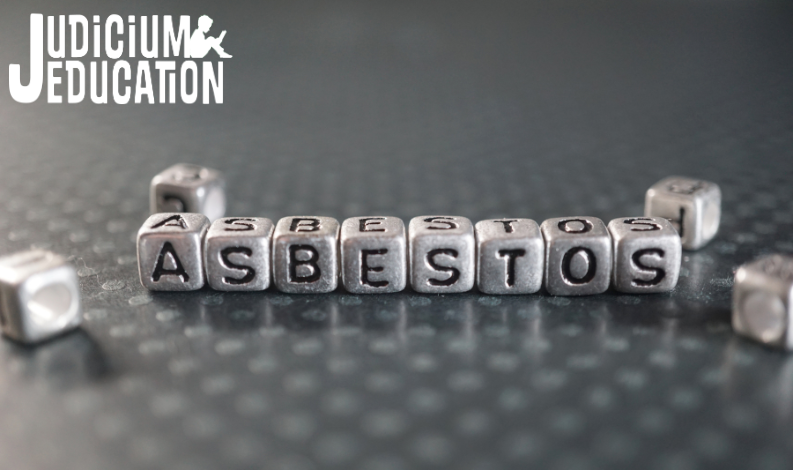
Employment Law: Top Tips to Avoid Party Pitfalls
subscribing to our newsletter
This summary is based on Judicium’s Employment Law ‘Sofa Session’ from the 8th of November, with our resident expert Suzanne Ravenhall, MCIPD. This session focused on holding inclusive events, communications with staff and key do’s and don’ts.
Work parties are a fun way to celebrate and build camaraderie with colleagues. However, they can also be a potential minefield for inappropriate behaviour and misunderstandings.
In the UK, poor behaviour at work parties can potentially contravene several pieces of legislation depending on the nature and severity of the behaviour, and also can contravene an employer’s policies or potentially the employee’s own Contract of Employment.
Key UK Legislation and Regulations (that could impact events such as Christmas parties)
1. Equality Act 2010
The Equality Act prohibits inappropriate behaviour that might be described as discrimination, harassment, and victimisation on the grounds of protected characteristics.
Protected characteristics are age, disability, gender reassignment, marriage and civil partnership, pregnancy and maternity, race, religion or belief, sex, and sexual orientation.
This could include offensive remarks or exclusion from social activities.
It would be easy to see how, with too much alcohol consumed, an employee might violate certain laws or policies. Remember that certain employees, even though they’re attending a Christmas party, may not be taking part in the same religious festivals or foods traditionally shared at this time of year.
2. Sexual Harassment
This is a form of discrimination and is covered under the Equality Act 2010. Inappropriate conduct of a sexual nature may be both a crime and an employee relations issue for the employer.
3. Health & Safety at Work Act 1974
This legislation requires employers to ensure the health, safety, and welfare of their employees.
There have been cases where poor behaviour has led to injuries or safety concerns. If this happens even after a work event, the employer may be accused of being ‘vicariously liable’ for the injury because it fell within the remit of the ‘course of employment’. An injured employee might make a case against the company for negligence in ensuring a safe environment.
4. Data Protection Laws (GDPR)
Sharing photos or information about colleagues without their consent on social media or elsewhere can potentially breach data protection laws, particularly if it involves their personal data.
Inappropriate comments or gossip about colleagues shared at a work party may end up damaging someone's reputation which could result in a defamation case.
5. Alcohol and Drug Laws
In cases of excessive alcohol or drug use at work parties, individuals may be subject to laws related to public intoxication or controlled substances.
How employees will get home should be considered, particularly if you are supplying alcohol, or there is an open bar.
6. Criminal Laws
In extreme cases, certain behaviours at work parties, such as physical violence or theft, may result in criminal charges under the UK's criminal laws.
7. Employment contracts and company policies
Many schools have a specific Code of Conduct policy or even policies related to behaviour at work-related events.
- Bullying: Allegations of workplace bullying sometimes arise from behaviour at a work-related event. An employee may claim they were subjected to bullying, humiliation, or ridicule during the party.
- Defamation: Inappropriate comments or gossip about colleagues shared at a work party end up damaging someone's reputation. This may result in a defamation case.
Are there Internal Policies and Procedures Staff Need to Know - Even if it's an After-work Party?
Code of Conduct Policy:
Most schools have quite a prescriptive Code of Conduct policy about what is acceptable or unacceptable behaviour. Occasionally, certain behaviours are implied and not set out explicitly, but sometimes policies set out types of conduct occurring outside of work that may be incongruent with working in a school.
Teachers’ Standards:
This sets out the minimum standards that teachers must subscribe to in their everyday work, but Part Two specifically sets out of work behaviour (in bold):
Teachers uphold public trust in the profession and maintain high standards of ethics and behaviour, within and outside school, by:
- treating pupils with dignity, building relationships rooted in mutual respect, and at all times observing proper boundaries appropriate to a teacher’s professional position.
- having regard for the need to safeguard pupils’ well-being, in accordance with statutory provisions.
- showing tolerance of and respect for the rights of others
- not undermining fundamental British values, including democracy, the rule of law, individual liberty and mutual respect, and tolerance of those with different faiths and beliefs.
- ensuring that personal beliefs are not expressed in ways which exploit pupils’ vulnerability or might lead them to break the law.
Disrepute
You may pose the question, “Did the actions of the employee actually bring the school into disrepute?”
“Disrepute” must be proven. For instance, a letter or a phone call from a member of the public setting out that “Teacher X did XYZ…” and the likely consequence is that there is now some mistrust in that teacher, or mistrust in the school or mistrust in the wider profession.
There might be a commercial consequence e.g., it might lead to fewer applicants from students or difficulties in recruitment due to reputational damage.
You must be able to prove they ‘actually’ brought the school into disrepute and provide evidence to support it.
Examples of Tribunals
- Chief Constable of the Lincolnshire Police v Stubbs and others
- The claim was that the employer was vicariously liable for an act of sexual harassment committed by an employee in a pub outside working hours. It was stated that social events away from the office involving employees from work either immediately after work, or during an organised party, fell within the remit of the ‘course of employment’.
- Livesey v Parker Merchanting Ltd
- This case demonstrated the difficulties in defining the ‘course of employment’, with the tribunal discussing sexual harassment that occurred during a car journey home from a work Christmas party.
- Williams and others v Whitbread Beer Co
- This case illustrates the importance of monitoring and controlling the alcohol consumption and behaviour of employees. The employer provided an unlimited free bar at an office party but then unfairly dismissed three employees even though their resulting behaviour was abusive and violent.
- Gimson v Display By Design Ltd
- This employer dismissed an employee for a fight that took place after the end of a Christmas party. This case supports the notion that it is acceptable for employees to be disciplined for misconduct occurring outside of the office, provided that the incident is sufficiently closely connected to work to have had an impact on the work environment.
- Bellman v Northampton Recruitment Limited
- The employer was found liable when the managing director assaulted another employee during drinks after the Company Christmas party causing him serious brain damage.
What is important in all of the above is in Education there is an expectation that employees will uphold the teaching profession, and the professionalism and behaviour expected of them. Violating laws and school or Trust policies can lead to disciplinary action or even dismissal.
NB: It's important for both employers and employees to be aware of legal implications, and for employers to have clear policies in place to address inappropriate behaviour at work-related events.
Employees should also be familiar with these policies and understand the potential legal consequences of their actions.
It’s also important for employers set out their expectations to their employees and not ‘hope for the best’ during these events.
Conduct Advice for Employees Before the Party Season Starts
Managers should set out their expectations of their employees.
A managers’ advice could be a very light touch approach, or more prescriptive depending on your staff profile. A young exuberant maths department may need a different approach to the TA team.
The Headteacher may decide to make a morning briefing type of announcement or speak to the SLT, who in turn may decide to speak to their direct line managements. Then heads of department will do the talking to their staff at their departmental meetings.
Some of the points you may wish to consider discussing:
Before the party
- RSVP: Encourage staff to respond promptly to the invitation, whether they plan to attend or not. This helps with planning and ensures staff are not unaccounted for.
- Dress Code: Advise staff to dress appropriately for the occasion and follow any specified dress code. If it's not clear, it's better to be slightly overdressed than underdressed. You may wish to be prescriptive about revealing/inappropriate outfits because they are representing the school.
- Gifts: If there's a gift exchange, set a budget and advise staff to stick to it. Avoid giving overly personal or potentially offensive gifts.
- Expectations: Ensure that employees are aware of what is expected of them regarding absence from work following the event or generally during the festive period.
- Stott v Next Retail Ltd was about an employee who failed to turn up for work following a Christmas bash.
During the party
- Managers: Avoid any conversations with your employees regarding performance, salary or career prospects whilst at the event.
- It has been known for promises made to an employee whilst under the influence of alcohol to be upheld by tribunal. Judge v Crown Leisure Limited and Edwards v Skyways Ltd
- Moderate/Responsible Alcohol consumption: If alcohol is being served, remind staff to drink responsibly. Excessive drinking can lead to embarrassing situations and poor judgment.
- Nixon v Ross Coates Solicitors and another is about an employee who went off to a hotel with another employee, got pregnant and was then subjected to bullying from the staff.
- Mingle: Encourage staff to make an effort to talk to different colleagues, not just their close work friends. It's a great opportunity to network and get to know people outside of the normal circles.
- Mind your language: Advise staff they are representing the school. They need to be mindful of their language and avoid using profanity or making inappropriate comments or jokes.
- Respect Personal Space: Always respect personal boundaries. Avoid physical contact or personal discussions that might make others uncomfortable.
- Stay Positive: Remind staff to avoid discussing controversial or sensitive topics like politics, religion, or office gossip. There are many grievances raised due to overheard conversations at work parties.
- Food Etiquette: Be mindful of any dietary restrictions or allergies that colleagues might have. Remember that some attendees might be celebrating a different religious festival to mainstream events.
- Enjoy the festivities: Encourage staff to join in the fun and participate in activities, games, or dancing if appropriate. This helps build team spirit.
- Thank the host: Be sure that someone in charge expresses the school’s thanks to the party organisers and the host of the event
- If something has gone wrong, they will know about it, and you need to find out first hand what’s happened!
After the party (where appropriate)
- Follow up: Send a brief thank you note or email to the party organisers and anyone who was especially helpful or friendly during the event, especially if something has gone wrong and you need to calm a developing situation.
- Social Media Caution: Advise staff to be careful about posting pictures or comments from the party on social media, especially if they involve colleagues. Always consider privacy and appropriateness.
- Avoid Office Gossip: Ask staff to resist the temptation to discuss or gossip about what happened at the party when you're back at work.
- Take Responsibility: If a member of staff made a mistake or behaved inappropriately at the party, talk to them as soon as possible.
- They may need encouragement to take responsibility and apologise to anyone affected.
- If their behaviour was really poor and likely to be controversial, you may be asking them to consider a wider apology.
- If the behaviour was so severe that it elicited complaints, then you may need to consider whether an investigation is appropriate, and consequently whether there will be wider procedural repercussions.
Helpful Info:
Managing Conflict – 15th November 9:30am - 12:30pm
A Practical Guide to Disciplinary Investigations –16th November 9:30am-1pm
A Practical Guide to Disciplinary Hearings and Appeals – 21st November 9:30am – 12:30pm
A Guide to Planning a Restructure/Redundancy Process – 30th November 9:30am- 12:30am
If you’d like to review Judicium’s forthcoming sofa sessions for next term please click here
Follow us on Twitter: @JudiciumEDU
© This content is the exclusive property of Judicium Education. The works are intended to provide an overview of the sofa session you attend and/or to be a learning aid to assist you and your school. However, any redistribution or reproduction of part or all of the contents in any form is prohibited. You may not, except with our express written permission, distribute or exploit the content. Failure to follow this guidance may result in Judicium either preventing you with access to our sessions and/or follow up content.
Related content
.png)
This blog is based on Judicium’s Safeguarding ‘Sofa Session’ from the 25 April with our resident expert Sarah Cook.

This blog is based on Judicium’s Health and Safety ‘Sofa Session’ from the 24th of April, with our resident expert Marta Zydel.

This summary is based on Judicium’s Employment Law ‘Sofa Session’ from the 17th of April, with our resident expert Paul Luffman LLB (Hons), L.P.C.
.png)
This is a summary taken from Judicium’s DPO ‘Sofa Session’ from the 20th of March with Data Services Consultant Patrick Ballantine.
.png)
This blog is based on Judicium’s Health and Safety ‘Sofa Session’ from the 14th of March, with our resident expert Jamie Ashard, LLB (Hons), GradIOSH, DipNCRQ.
This blog is based on Judicium’s Safeguarding ‘Sofa Session’ from the 13th of March, with our resident expert Joanne Bocko.


Sofa Sessions | Safeguarding